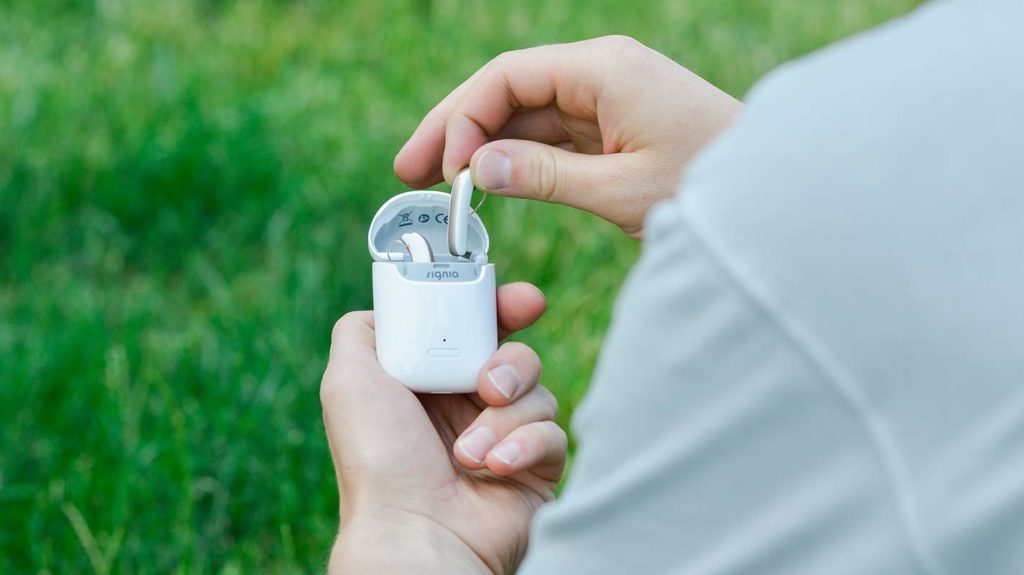4 Reasons Why People are Wearing Hearing Aids
Every day over 10,000 Americans get new hearing aids and that number is growing. Here are the top 4 reasons why....
Read more

You’ve made an awesome investment in your quality of life. You have more energy, feel less stressed, and your conversations are easier. So, of course, you want your hearing aids to maintain top performance.
Whether you’ve had hearing aids for a while or you just got your first pair, hearing aid maintenance is an important part of hearing your best as well as protecting your devices from wear and tear. From cleaning them with the right type of cloth to making sure you’re storing them correctly, making hearing aid care and maintenance part of your daily routine will help ensure your devices last for years to come.
Specific maintenance can vary depending on the type and model of your hearing aids. For example, the Horizon Go IX hearing aids come with a maintenance guide with step-by-step instructions. Be sure to check your specific manufacturer's instructions or ask your hearing care specialist if you have questions about hearing aid care.
Here is a general hearing aid maintenance checklist to help you get started.
Hearing aids are extremely durable, but can still be damaged if you don’t handle them with care.
It’s very important to keep your hearing aids away from all liquids and moisture to avoid damage.
Establishing a regular cleaning routine at home, and periodically with your hearing professional, is essential to hearing aid performance.
Following these tips will help you keep your hearing aids operating like new. As a reminder, don’t try to repair your hearing aids if something isn’t working right. Repairs should always be handled by your hearing care professional.
If you have questions about hearing aid maintenance, or are looking for your first pair of hearing aids, contact one of our helpful hearing specialists today. We’ll match you with the best pair for your individual needs and lifestyle. We’ve helped more than 100,000 people hear better and live their best. We’re here to help you, too, every step of the way.
Related Articles
Every day over 10,000 Americans get new hearing aids and that number is growing. Here are the top 4 reasons why....
Read more
Adjusting to your new hearing aids is a process and it’s important to take it slow...
Read more
You should explore the different types available and determine whether improving your hearing is worth the cost....
Read more

Take our free 2-minute question-based hearing test!
It will help you make an informed decision on treating your hearing loss.